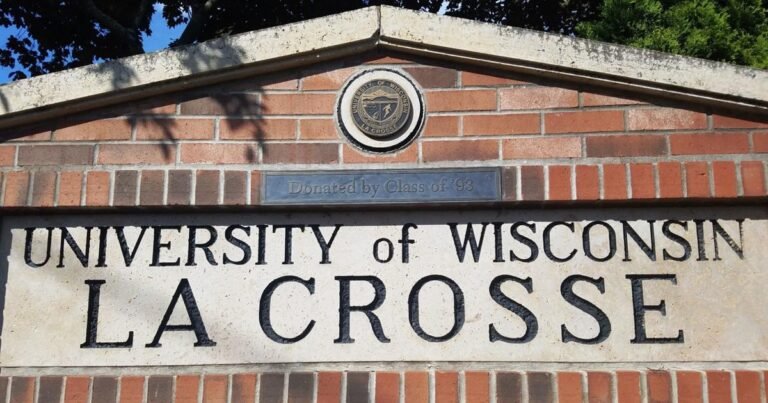KJ Lang UW-Lacrosse
They all reminisced about a waterfall that was one of their first stops in India.
Physical therapy students from the University of Wisconsin-La Crosse were climbing rock steps alongside a rushing river when they noticed a man walking handstands up the jagged path, dragging his feet behind him.
The scene reminded student Sam Bach of a question posed in a physical therapy class a few months earlier: “Are people who are paralyzed disabled?” The class then watched a video of a man with a paralyzed arm playing a trumpet with his foot. It was a hypothetical question; they were in the real world.
“At first I felt like there was nothing I could do to help him, but then I realized I didn’t have to,” Bach said. “This man is not defined by his disability.”
“He had such a bright outlook on life,” added student Katie Hall, “and he would tell us about where to find fruit and trees.”
Anyone else reading this…
Entering the physical therapy profession, students will work with people recovering from injury or illness, and their work will involve encouraging movements, strategies and mindsets that improve quality of life. To prepare, students need real-world experience working with people in diverse cultural and clinical environments, says Steni Sakkiliyas, assistant professor of physical therapy.
From the oncology unit to OGBYN, four UW-L physical therapy students traveled to Belagavi, India for three weeks in January for diverse clinical and cultural experiences. Another group of students plans to go again this fall. These hands-on health care experiences were made possible thanks to a new collaboration with India’s KLE Physical Therapy Institute, initiated by faculty mentor and guide Sakkiriyas. UW-L signed a memorandum of understanding with the KLE Institute in April 2021. At the time, the school couldn’t do anything in-person because of the pandemic, so they started with online student-to-student interactions in Sakkiriyas’ pathophysiology class.
The students say their first in-person experience in January was impactful. Working in clinical settings, they experienced smiles that helped them overcome language barriers and new cultural norms that challenged their own. They put into practice concepts they learned in the classroom to better care for patients, such as listening well, empathizing and adapting to their condition.
“We experienced things we could never have imagined in America,” student Anna Edsil said. “One of the biggest examples was learning about the importance of religion and socioeconomic status in India when it comes to healthcare. We don’t ask these questions in America, but there’s a big difference in the rehabilitation process in India. … It makes you think about your life and what you have access to.”
Student Kayla Rath had the experience of receiving therapy alongside mothers on the hospital’s OGBYN floor, a service that is not common in the U.S. They helped the mothers through their postpartum rehabilitation and educated them about what to expect in the coming months.
Katie Hall, a student working in the oncology unit, recalls learning different compression techniques with women with breast cancer and lymphedema. She couldn’t speak her patients’ language or understand firsthand their experiences with these conditions. But she found a way to connect. “Even if you don’t speak the language, you can still treat them with love, care and respect, and that goes a long way,” she says.
Sakkiriyas recalls having a visitor from the United States during his student days and how it made an impression on him as a student.
“This is kind of giving back to the community in a way,” Sakkiriyas said.
This collaboration and the subsequent clinical training trip for students to India was made possible with the full support of the Faculty of Health Professions, the Physiotherapy Program, the Graduate Council, and the KLE Institute.
“The people we met weren’t disabled,” Russ says, “they were as able-bodied as possible. When we treat patients, we try to maximize what they can do and give them knowledge about their potential.”


